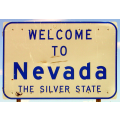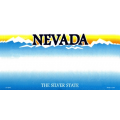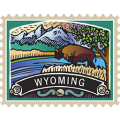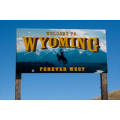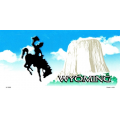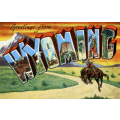With the demand for nurses far exceeding supply, a nursing career provides job security and attractive pay. Those considering a career in nursing may choose from several schools in the Las Vegas Valley. University of Nevada, Las Vegas (UNLV) and College of Southern Nevada are two excellent public options within the Las Vegas city limits. Just 16 miles away in nearby Henderson, students will find additional options such as Everest College and Nevada State College.
Nursing roles and programs
Latest articles
Nursing is the largest healthcare profession in the United States. Henderson, Nevada, is part of the Las Vegas metropolitan area which has over 17,000 licensed nurses, including certified nursing assistants (CNAs), licensed practical nurses (LPNs), registered nurses (RNs), and advanced practice registered nurses (APRNs). Together, these four roles are the frontline providers of patient care, though their individual scopes of practice differ significantly.
Overview of nursing roles
Higher education paves the way for employment opportunities in today’s rapidly advancing healthcare industry. Nevada’s major nursing employers, such as St. Rose Dominican Hospitals and the Department of Veterans Affairs, are actively filling positions with more specialized requirements. This includes positions in nursing administration, nursing education, and family practice nursing, all of which require a master of science in nursing (MSN) degree.
As the U.S. population ages and the provision of healthcare grows increasingly complex, healthcare employers are seeking out registered nurses (RNs) with at least a bachelor of science in nursing (BSN). In fact, the Institute of Medicine recommends that 80 percent of nurses hold a BSN degree by 2020. BSN-educated nurses often hold superior skills in critical thinking, leadership, case management, and health promotion.
BSN program overview
Graduate studies are becoming increasingly common in a number of professional fields. One excellent example is nursing, where more and more professionals are pursuing a master of science in nursing (MSN). This graduate degree enables registered nurses (RNs) to specialize in a particular subfield of nursing. MSN-holders are qualified to work in advanced fields like nursing education, nursing research, and nursing management. They can also choose to enter the rewarding world of advanced practice registered nursing (APRN).
Higher education has become the norm in the nursing industry. Employers prefer candidates with exposure to both the theoretical and practical aspects of nursing, as well as a foundation of general knowledge. For this reason, the bachelor of science in nursing (BSN) program is one of the most popular education pathways for today’s aspiring registered nurses (RNs).
Overview of the BSN program
Aspiring registered nurses (RNs) in Wyoming can choose to pursue either a two-year associate’s degree in nursing (ADN) or a four-year bachelor of science in nursing (BSN). Both pathways prepare students for the NCLEX-RN national licensure exam, yet each offers certain advantages and disadvantages. A primary advantage of the shorter ADN program is that it offers a faster route to nursing employment.
ADN programs in Wyoming
Licensed practical nurses (LPNs) are an essential part of the healthcare industry. They work under the supervision of registered nurses (RNs) to handle tasks such as measuring a patient’s blood pressure, documenting a patient’s vitals, giving injections, and dressing wounds. LPNs work in a variety of healthcare settings such as hospitals, nursing homes, extended care facilities, physician’s offices, and private homes.
Overview of LPN programs
Nursing school can be an expensive endeavor. Tuition is by far the single largest cost component of nursing education. In addition to tuition, students must bear the costs of registration fees, books and supplies, room and board, and living expenses. Fortunately, a number of Wyoming schools offer quality nursing education at an affordable price, whether you are interested in becoming a certified nursing assistant (CNA), licensed practical nurse (LPN), or registered nurse (RN).
Professional fields like nursing require specialized education. Nursing programs feature hands-on training that provides the skills needed for success, even in a challenging healthcare environment. The Department of Veterans Affairs is one of the nation’s top employers of nurses. Not only are they looking for superior technical skills, but they also seek compassionate nurses that can handle the emotional aspects of healthcare. Many private school programs help nursing students develop robust skills in areas like teamwork, communication, and of course medical knowledge.



